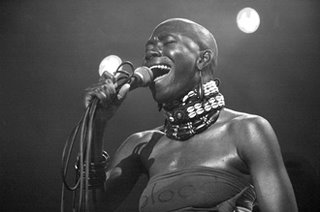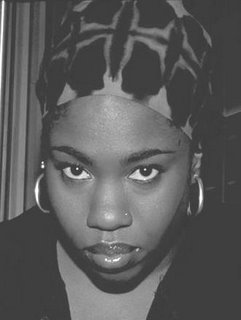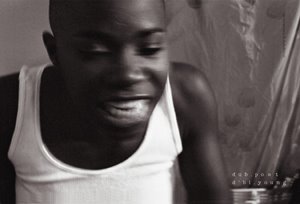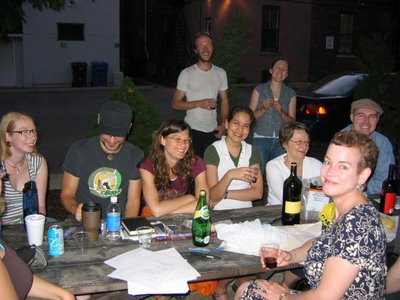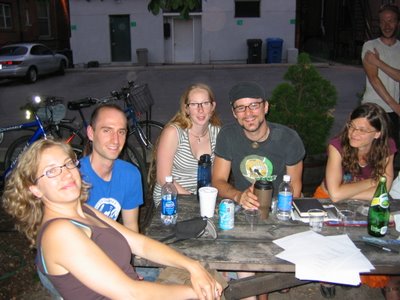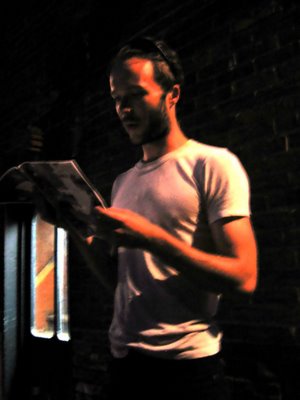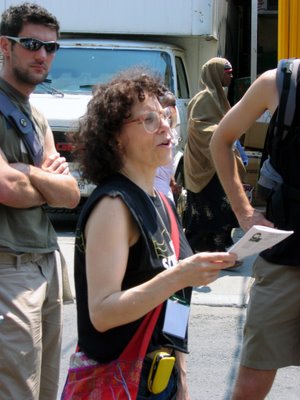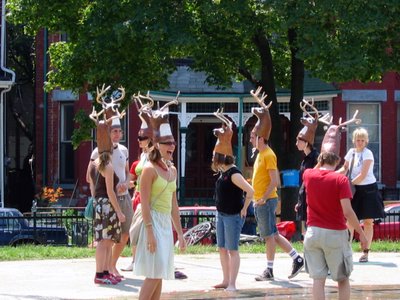To be honest, I couldn't really figure out who the intended audience was. The interpretation of the Horsemen didn't offer much to people familiar with the work: there was nothing 'new' or challenging in the re-staging -- just the pleasure of the act of re-staging. Furthermore, the radicalism of the Horsemen was erased and even the theoretical sophistication minimized. This wasn't a comment on the group, or an exploration of the boundaries they unsettled -- it was literally, "4 Horsemen: The Musical." A surreal "Phantom of the Opera" for Canadian poets. There was nothing 'punk' left of this very radical group.
On the other hand, the disconnected nature of the event wouldn't have been particularly gratifying to someone completely new to the world of the Horsemen or sound poetry -- so it wouldn't work very well as a general-public introduction. The "Lion King" crowd would have been alienated by the lack of characters and relationships on the stage. There wasn't a narrative or a storyline to connect the poems. Just a strange combination of interpretive dances, vaudeville antics, and minute narratives (an orgasm scene, a simple love narrative) acted out.
Another strange dimension was the reduction of the Four Horsemen into a bpNichol and his band scenario. Most of the poems performed and animated were, in fact, not even Horsemen texts but bp's own work. They featured familiar works like "Australopithicus", "st*r", "cycle #22", "Blues", "Flower Eyes" and "parallel lines". The video montage mostly featured beep, and were mostly taken directly from Michael Ondaatje's "Sons of Captain Poetry." This was nice, and all, but the question remains -- why the focus on his non-Horsemen work? It would have been more interesting/challenging if they had attempted some of the more extreme works by each of the other poets (can you imagine an interpretive dance version of McCaffery's "The Black Debt"?).
It would have been more accessible to a general audience (assuming that is what they are going for) if they had built up a narrative around the history of the formation of the group, maybe even depicting some of the tensions that caused the group to implode. It is generally held that beep held the group together, but the performance didn't give any insight into the raison d'etre of the group let alone the people involved. If they are not going to give us an experience of the group's radicality, or engage with them theoretically, then some insight into the human drama might give the work as a whole some necessary focus.
The show is presently being "workshopped" and may see some substantial revisions before being officially launched next year. I hope that they make a more committed decision about their intended audience and re-orient the show more appropriately in either direction (or even drop the charade and make it a bpNichol bioshow). I don't mean to be totally negative: it is fascinating to see a new generation work on the Horsemen, and some of the 'skits' in the show were promising. All of the good work, though, served to highlight the potential of the project to me, rather than fulfill its great promise.





